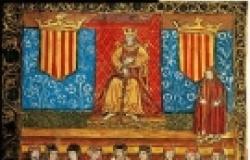The Rein of Spain

Alastair Newton explores recent politics in Catalonia, the region’s relations with Madrid and its future potential EU membership.
Contrary to the claims of its president, Artur Mas, I do not believe that the outcome of Catalonia’s 27 September regional election should be read as a vote for independence from Spain. Nevertheless, it is being ‘spun’ strongly as such by him and cannot, therefore, just be dismissed, as ruling Partido Popular (PP) in Madrid is trying to do.
As things stand, therefore, Madrid and Barcelona now appear to be firmly on a collision course with tensions set to ratchet up further after Spain’s general election due before the end of this year. Compromise on both sides is likely to be needed if this is to be avoided and a mutually agreeable settlement reached. But, at this stage, there is little, if any, sign of flexibility on either side.
No Mas movement
First, and perhaps most compelling from the perspective of PP, is the fact that fewer than 50% of those who voted backed a pro-independence party (on a remarkably high turn-out of 77%). Had this been a ‘proper’ referendum, the outcome would therefore have been to remain a part of Spain. Having claimed that the election was a de facto referendum on independence, the pro-independence parties are therefore being somewhat selective in their reading of the outcome, based on the number of seats in the regional assembly, ie 72 out of 135. (Mr Mas’s pro-independence bloc, Junts pel Si, took 40% of the vote, winning 62 seats; and the left-wing pro-independence CUP secured a further ten seats.)
The narrow majority of the popular vote against independence is broadly in line with opinion polls over the past couple of years which suggest that the region is divided more or less 50:50, albeit with a sizeable majority supporting a referendum. Admittedly, around 80% effectively voted for independence in the informal referendum held last November; but this was with a turn-out of just 40%.
It’s the economy…
Before the crisis opinion polls suggested that no more than 20% of Catalans favoured quitting Spain. So, the relatively recent surge in support for independence may, as much as anything, be a reflection of the economic malaise which has gripped the country for much of the eurozone crisis, now approaching its sixth anniversary. After all, Catalonia comprises just 16% of Spain’s population but generates around 20% of its GDP while not enjoying the same level of fiscal autonomy as is found in some other regions. This has led many Catalans to feel that their region has been getting a raw deal from successive economically incompetent central governments.
All other things being equal, one might, therefore, expect some slide in support for independence with the economy now showing clear signs of recovery thanks, in significant part, to structural reforms brought in by the current administration and the previous left-of-centre PSOE government. However, it is worth recalling that Mr Mas was firmly rebuffed by Spain’s prime minister, Mariano Rajoy, in 2012 when he sought more fiscal devolution for Catalonia, a response which has certainly boosted and stiffened support for outright independence.
Constitutional hurdles
As for Mr Rajoy, he has the backing of both the national parliament and Spain’s constitutional court in claiming that Catalonia has no right of self-determination, let alone the authority to form a breakaway state. Furthermore, he argues that any decision on independence would be a matter for the whole of Spain and not just one region.
Nevertheless, a pro-independence absolute majority in Catalonia’s regional assembly should allow implementation of at least the early steps of Mr Mas’s proposed 18-month independence strategy, including the setting up of a Catalan ‘foreign ministry’, tax authority and central bank. The stated intent of Mr Mas is then unilaterally to declare independence at the end of the 18-month period if Madrid does not grant Catalonia a referendum in the meantime.
The country goes to the polls
However, with Spain’s next general election due to be held no later than 20 December it may be that significant steps of this kind are put on hold until the new year. (Indeed, it may also be that a regional election, which had initially looked likely to be held much earlier this year, was deliberately delayed in part to allow something of a ‘time out’ after the ballot because of the proximity of the general election.) The key point here is that historically among the national parties PP has been the one which has been most resistant to devolution to the regions (where more devolution still appears to be the aspiration of the majority in Catalonia, rather than independence per se). A change at the helm in Madrid could therefore be a positive at least for devolution prospects.
Post-election uncertainty
Nevertheless, it is not at all clear that the general election will result in a government in Madrid which would be more inclined to compromise of some sort than the current one.
Opinion polls currently point to a plurality of around 30% of the vote for PP, with the main opposition PSOE trailing by around five percentage points. It therefore looks unlikely that any single party will be able to form even a minority government capable of sustaining a full parliamentary term (noting that PSOE was able to govern for the full four years as a minority from 2007 to 2011 but having fallen only narrowly short of a majority). Presumably, however, if it does indeed secure a plurality PP will have the right to go first in forming a government which can secure at least an initial vote of confidence in the parliament.
In this event, the Catalonia-originated centre-right party, Ciudadanos, could prove to be the main kingmaker. Ciudadanos will be the largest anti-independence party in the new regional assembly in Barcelona having won 18% of the vote and 25 seats on 27 September (whereas PP attracted just eight percent of the vote, translating into 11 seats). Nationally, where it is benefitting from the sort of anti-establishment sentiment which is to be seen in many mature democracies today as both PP and PSOE have been mired in corruption scandals, it is polling consistently in double-digits. Were we to see a - probably still minority - PP/Ciudadanos coalition in Madrid it may be that the latter would be able to moderate the hard line of the former on devolution, thereby potentially taking at least some of the stream out of Catalonia’s pro-independence drive. However, an independence referendum still does not look to be on the cards.
If, on the other hand, PSOE were to form the next government, prospects for devolution would likely look considerably brighter even though it is hardly less opposed to Catalonian independence than is PP. However, it is hard to see a left-of-centre government emerging which was not dependent in some way - ie either within or from outside a formal coalition - on the populist left-wing Podemos party, currently polling at an average of around 16%. From Catalonia’s perspective, this might be the best election outcome in that Podemos at least favours Catalans’ right of self-determination. But even if some form of broad accommodation between PSOE and Podemos could be reached, the former may still baulk at an independence referendum.
Then there is the option of a PP/PSOE ‘grand coalition’. No matter how unlikely this may seem given the enmity between Spain’s two main parties, it would be unwise to rule it out completely after what promises to be a messily indecisive election outcome. However, quite where such a combination would stand on devolution is far from clear; and there seems to me again to be little likelihood of its agreeing to an independence referendum.
Entrenched positions
Thus, if there is one near-certainty embedded in the upcoming general election it is that whatever the make-up of the next government the probability of Catalonia getting the go-ahead to hold a legitimate independence referendum is likely to remain low. And, unfortunately, it is not only Madrid which appears to be painting itself into a corner on this issue. Barcelona now appears to be near, if not at, the point where it would be very hard for it to back away from unilateral secession if it is not granted a referendum.
EU - The ultimate stumbling block?
That said, if there is one issue which could - and, I believe, should - cause Barcelona to ‘blink’ it is the question of EU membership. The pro-independence lobby insists that the EU would never block Catalonian membership - and, certainly, on size, sense of national identity and economic strength it has a case to make. However, I firmly believe that such factors are likely to be heavily outweighed by the politics; in other words, that, in the event of a unilateral declaration of secession, Catalonia would find the door to EU membership firmly barred…and not only by Madrid. German chancellor Angela Merkel has expressed solidarity with Mr Rajoy over the need to respect “national law”; and UK prime minister David Cameron - no doubt with an eye to likely demands from Edinburgh for a second Scottish independence referendum in the not too distant future - has said that an independent Catalonia would have to take its place at the end of the queue of countries aspiring to EU membership. Indeed, despite deep divisions on any number of other issues, I think this is one on which EU member states could be expected to show an unusual degree of solidarity.
No holding back?
Faced with the prospect of what would be a big step into the unknown as far as EU membership (inter alia) is concerned, Catalans may pull back from the brink. However, there is a downside here. Anticipation of EU opposition to (early if at all) Catalonian membership may encourage even more intransigence on devolution in Madrid than we have seen to date. And the greater the intransigence in Madrid the more likely it is, I believe, that inflamed sentiment will cause Catalonia to step off the cliff irrespective of the consequences.
Alastair Newton is a former member of HM Diplomatic Service who subsequently spent ten years as a political analyst in the City. Now independent, he is co-founder and director of Alavan Business Advisory based in Livingstone, Zambia (http://www.alavan.biz).
Photo credit: Unknown / Foter / Public Domain Mark 1.0


